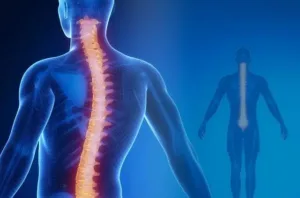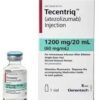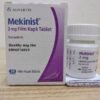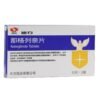There are many types of brain tumors, the most common of which are neuroepithelial tumors and astrocytoma:
Glioblastoma (GB), also known as glioblastoma multiforme (GBM), is one of the most common brain tumors and a type of astrocytoma.
Giant cell astrocytomas (SEGAs) are benign, slow-growing, rare central nervous system tumors composed of large star-shaped cells called astrocytes. Subependymal giant cell astrocytomas are common in patients with tuberous sclerosis complex (TSC).
Treatment of primary brain tumors includes palliative care (symptomatic) and therapies designed to improve survival.
medicine
1. BiCNU (Carmustine)
Carmustine is approved for use alone or with other drugs to treat brain tumors. Because it can penetrate the blood-brain barrier, it is often used for brain tumors and intracranial metastases.
A crystalline carmustine implant is a type of carmustine contained in a chip. The wafer has a slowly dissolving coating and releases carmustine directly to the area where the tumor was removed. For brain tumors, this form may be better than other forms of carmustine, with fewer side effects.
2. Lomustine
Lomustine is approved for use alone or with other drugs to treat brain tumors in people who have already had surgery or radiation therapy. Lomustine is highly fat-soluble and can pass through the blood-brain barrier and enter the cerebrospinal fluid. It is often used for primary brain tumors (such as glioblastoma) and secondary tumors.
3. Temodar (Temozolomide) Temodar (Temozolomide)
Temozolomide is approved to treat adult brain tumors: anaplastic astrocytoma and glioblastoma multiforme (GBM). Clinically, temozolomide can be spontaneously and quickly degraded in the body to produce the active metabolite MTIC, which produces anti-tumor effects.
4. Tumor Treating Fields (TTF)
Tumor electric field therapy (TTF) is a tumor treatment method that uses specific electric field frequencies to interfere with cell division, inhibit tumor growth, and cause the death of cancer cells affected by the electric field. Tumor electric field therapy does not irritate or cause heating of brain tissue, but rather targets dividing cancer cells of a specific size. Tumor electric field treatment causes minimal damage to healthy cells.
5. Afinitor (Everolimus)
Everolimus is approved to treat subependymal giant cell astrocytoma (SEGA) in adults and children 1 year or older with inoperable tuberous sclerosis.
6. Bevacizumab
Bevacizumab is approved for use alone or with other drugs to treat glioblastoma. For use in adults whose cancer has come back or has worsened after other treatments.
7. Delytact (Teserpaturev/G47Δ) oncolytic virus
Delytact (teserpaturev/G47Δ) is the world’s first oncolytic viral therapy approved to treat primary brain tumors. Teserpaturev is a genetically engineered oncolytic herpes simplex virus type 1 (HSV-1), a third-generation oncolytic virus jointly developed by Daiichi Sankyo and Dr. Tomoki Todo of the Institute of Medical Sciences, University of Tokyo, Japan. .
8. The combination of Tafinlar (dabrafenib) + Mekinist (trametinib) is a global leader in targeted therapy in BRAF/MEK inhibition studies and patients, possibly by blocking the enzymes associated with BRAF and MEK kinases. Signals to help slow tumor growth. These signals are associated with tumor growth in various types of cancer.
9. Ojemda (tovorafenib) is a highly specific pan-RAF kinase inhibitor that can inhibit the growth of tumors carrying BRAF fusions or BRAF V600 mutations and is brain-penetrating. Dysregulation of the MAPK pathway has been shown to occur in many cancer types, and it is one of the most commonly mutated oncogenic pathways in cancer, and RAF protein is a key kinase in the MAPK pathway.
10. Vebreltinib (Bozitinib) is a small molecule selective MET inhibitor. Bozitinib can form π-π stacking with the Y1230 residue of c-Met, specifically binding and stabilizing it. The self-inhibitory conformation of MET kinase makes it difficult for MET protein to activate, resulting in highly selective inhibition.
Bripretinib is approved in China for the treatment of adult patients with IDH-mutated astrocytoma (WHO grade 4) harboring the PTPRZ1-MET fusion gene who have failed previous treatment or who have a history of low-grade glioblastoma.
other
Chemotherapy drug combinations for brain tumors
PVC=Procarbazine Hydrochloride+ Lomustine+Vincristine Sulfate
PVC = procarbazine hydrochloride + lomustine + vincristine sulfate
PCV is often used along with radiation therapy to treat brain tumors















Leave a reply